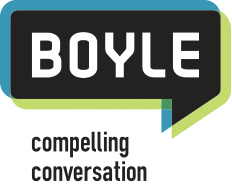Higher Education for Adults Increasingly Means Enrolling in College Alternatives

For more than 50 years in this country, ever since baby boomers started graduating from high school in the mid-1960s, there has been an assumption that individuals with high school diplomas in hand would follow one of two tracks – college or no college.
And even though the definition of “college” has changed dramatically over that same timeframe, the same binary assumption remains: a graduating high school student is assumed to either enroll in a four-year traditional college or a two-year community college, or to not pursue post-secondary studies at all.
It’s past time for this debate over college to evolve. College vs. no college is a false choice and fortunately there are plenty of college alternatives available. Some of those education and/or apprenticeship options are gaining traction so quickly that they should lead us to cast the old assumptions aside, and to look anew at the purpose of post-secondary learning – for students and for our country.
One long-held assumption about traditional college is that the diploma it offers is a necessary checkmark on the list of qualifications that an employer may be looking for in job candidates. Earlier this fall, however, job-search site Glassdoor compiled a list of 15 top employers that have said they no longer require applicants to have a college degree. Companies like Google, Apple, and IBM are prominent on that list.
Indeed in 2017, IBM’s vice president of talent Joanna Daley told CNBC Make It that about 15 percent of her company’s U.S. hires don’t have a four-year degree. She said that instead of looking exclusively at candidates who went to college, IBM now looks at candidates who have hands-on experience via a coding boot camp or an industry-related vocational class.
This stance by Apple, Google, IBM and others is important because they are companies that have prided themselves on having the “most educated” workforces in the world. With their change in attitude, and more importantly in hiring policy, the door is opening for all who are involved in education to be looking at viable alternatives to the traditional college track.
Surely, the path from “here to there” – from the present state of college degree as marking the checkbox of necessary credential to the future state of credential being attained via a non-traditional program – won’t be smooth or easy, and some long-held perceptions about college tend to die hard.
To prove this point, witness the fall 2018 survey from the Association of American Colleges & Universities (AAC&U) showing that 82 percent of executives and 75 percent of managers still think that completing a college education is “very important” or “absolutely essential.”
Even so, the association titled the report “Fulfilling the American Dream: Liberal Education and the Future of Work,” because it was mindful of the worries the public has about higher education, said AAC&U president Lynn Pasquerella.
A point that was somewhat buried in the report (but one that caught my eye) was this: executives and hiring managers surveyed indicated they’d be much more likely to hire a student with an internship or apprenticeship, experiences where students learn skills such as effective oral communication and critical thinking that are so critical from an employer perspective.
It’s clear that the meaning of education is changing. While a diploma from a traditional college or university still sends an important signal, it is no longer seen as essential. Tech skills, on the other hand, are increasingly must-have skills and that is most true in the Midwest where tech jobs are going begging as companies demonstrate their frustration at the lack of available talent.
That’s why now is the time for all who care about the future of this country to realize that college vs. no college is a no-way-out debate, which only frustrates the students we are educating and the job pipeline we are filling.
Alternatives to college, such as the tech education and apprenticeship academy for adult learners that Kenzie Academy has opened in Indianapolis, are increasingly viable options for those who want to acquire skills and leverage them into practical opportunities for meaningful employment in the evolving tech economy.
When it’s “back to school” time in the fall of 2019 and beyond, the stories in the news won’t just be about traditional college options, they will also be about the growing number of college alternatives.
